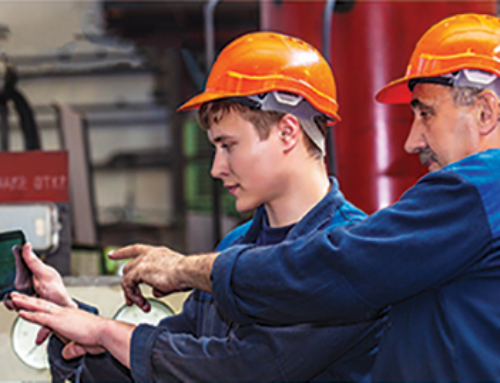Best Practices : 7 Ways to Keep Young Workers Safe
Think back to your first job and the excitement of earning money for your first car, stereo, or moving away from home. Hoping to make a good impression with your boss, you probably avoided going to him or her every five minutes with questions when you were unsure of procedures.
If you were fortunate, one of your more experienced co- workers caught you doing something unsafely, stopped you and showed you the right way. If you were less fortunate, you suffered an injury or caused property, equipment or product damage as a result of not knowing what you were doing.
Fast-forward several years to today, when you have young workers joining your company or organization. While much has changed since your time as a young worker, one thing has not: Just as you wanted to make a good impression, so do they. And just as you didn’t want to look like a greenhorn by asking too many questions, they maybe equally reluctant to ask questions of you.
You can’t afford to let a young worker stumble through procedures n an effort to avoid asking a “dumb” question. Here are seven things you can do as a supervisor to ensure that your young workers have a job they’ll remember for all the right reasons:
- When new workers are undergoing orientation in your workplace, tell them that if they are ever confused about any procedures, they are to come to you rather than attempt to figure out the problem on their own. Never criticize or belittle them if they come to you with a question you cannot believe they are asking.
- Tell them how to report unsafe or unhealthy conditions and reinforce your expectation that they will do so without delay.
- Ensure they are properly trained on safe procedures, personal protective equipment they need to be using and the hazards that they could face on the job. Don’t take a young worker’s word that he or she is clear on the procedure. Have that person explain and demonstrate to you the tasks they will be required to perform.
- Don’t overload them with information. Provide training in manageable chunks so they can absorb and retain the information.
- Closely supervise young workers. Also ask other experienced workers to watch out for them and intervene if they see a young worker performing a task unsafely or incorrectly.
- Give them written information on the tasks they will be performing, the potential hazards and the steps they need to take, including wearing PPE, to keep themselves safe.
- Be a good role model. If you aren’t wearing required PPE or are taking unsafe shortcuts, what sort of example are you setting?







